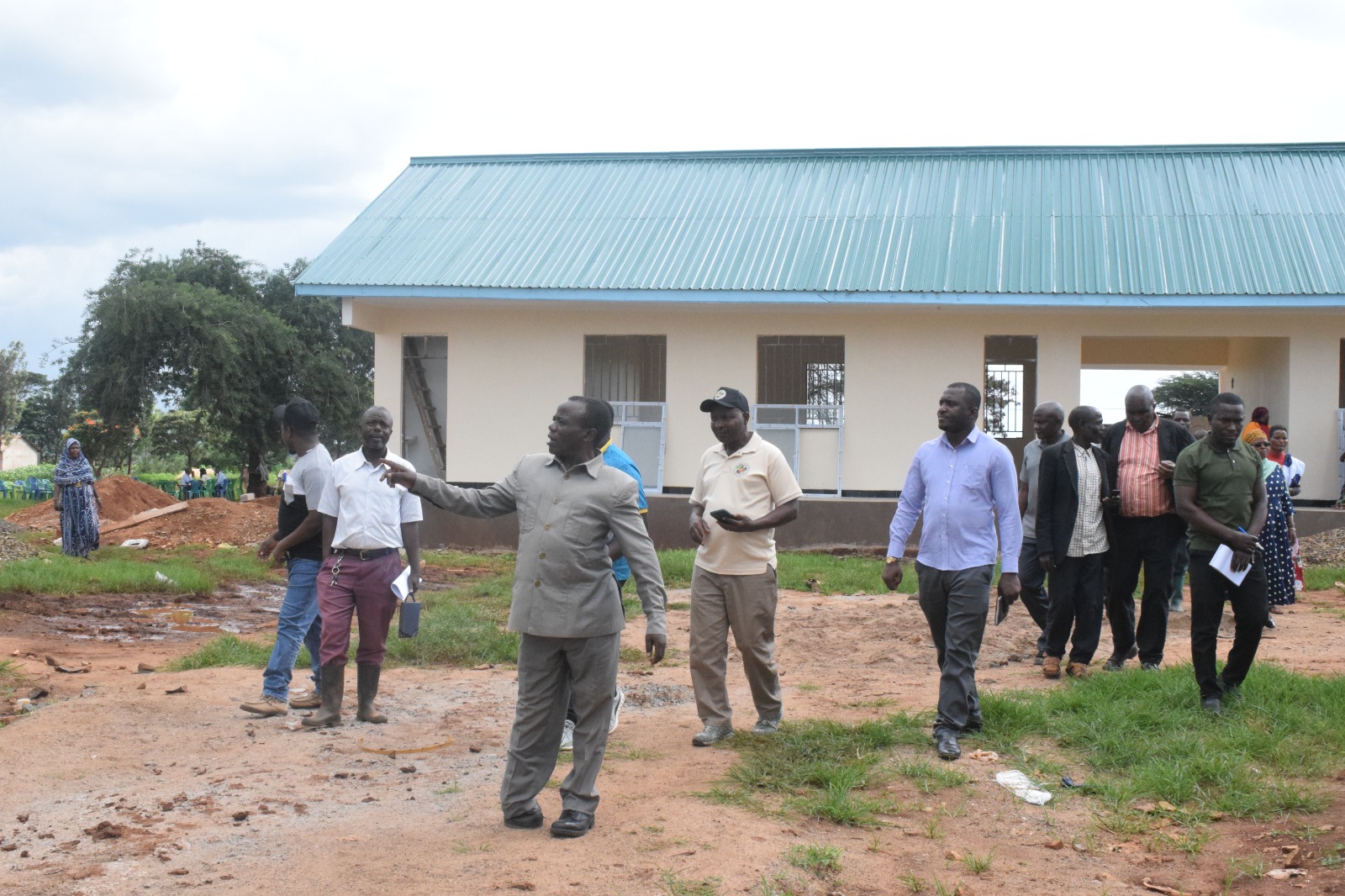African leaders push for homegrown credit rating agency to boost economic sovereignty

IN a transformative move toward financial independence, African leaders are taking a stand to reshape how the world views the continent's economic strength. With the establishment of the African Credit Rating Agency (AfCRA), Africa is reclaiming control over its financial narrative.
For years, global credit rating agencies have been criticized for misrepresenting the continent's economic realities, often downgrading African nations without fully understanding their unique challenges and growth potential. AfCRA aims to change this, offering a credit rating system that is fair, transparent, and attuned to Africa’s diverse economic landscapes.
This new initiative is set to challenge the status quo by providing a more accurate, nuanced assessment of African economies, one that considers not only financial metrics but also regional developments, infrastructure projects, and governance improvements.
AfCRA will give African countries a platform to present their true economic story—driving confidence in local businesses, attracting foreign investment, and improving borrowing terms for governments and private sectors alike.
With AfCRA, Africa is positioning itself to reduce its reliance on external financial evaluations and establish a credit rating system that better reflects its aspirations and growth trajectory.
The implications are profound: a more empowered Africa could pave the way for greater economic stability, self-sufficiency, and stronger ties within the global marketplace. This marks the beginning of a new chapter in Africa's financial journey—one where the continent’s voice is no longer sidelined, but front and center.
The move, a key agenda item at the African Union's 37th Ordinary Summit, seeks to provide Africa with a credit rating system that aligns more closely with its growth potential, resilience, and unique challenges.
For decades, African nations have had their creditworthiness assessed by international agencies that often failed to capture the continent’s diverse economic realities and prospects. These ratings, many argue, have been biased and flawed, frequently ignoring Africa’s economic transformation, innovative financing models, and infrastructure development.
As a result, borrowing costs were often inflated, and the continent's investment potential was undermined. With the establishment of AfCRA, Africa aims to take control of its financial narrative and create a system that reflects its aspirations.
Set to officially launch in June 2025, AfCRA promises to provide an alternative to the dominant global rating agencies that often apply a one-size-fits-all model.
Unlike these international players, AfCRA will be focused exclusively on Africa, using local economic data, regional indicators, and context-driven analyses. The agency's methodology will emphasize sustainable development, financial inclusivity, and a more accurate representation of the continent’s risk profile.
Far from replacing existing agencies, AfCRA seeks to offer an African perspective on credit ratings that is transparent, fair, and development-focused.
The push for a homegrown credit rating agency stems from a long-standing frustration with international rating agencies, which have been accused of applying punitive ratings to African economies.
Many African leaders believe these ratings fail to take into account the resilience of their economies and the progress made in key sectors such as infrastructure, governance, and financial inclusion.
AfCRA aims to correct this oversight by ensuring that Africa's credit ratings are more closely aligned with the continent’s actual economic realities.
As the African Union’s core initiative for financial independence, the African Peer Review Mechanism (APRM) has played a pivotal role in the formation of AfCRA. APRM, an organization committed to improving governance and development across the continent, has provided the technical expertise and policy frameworks necessary for the agency’s launch.
The APRM’s involvement ensures that AfCRA aligns with Africa’s broader financial integration goals and that it operates with transparency, credibility, and independence from political influence.
AfCRA's approach will be a distinctive one, incorporating both qualitative and quantitative measures to assess a country's economic health.
It will take into account factors such as infrastructure development, innovations in finance, and improvements in governance. This approach promises a more holistic view of a nation's economic strength, presenting a clearer picture of the potential risks and rewards for investors.
In addition to creating a more accurate and inclusive credit rating system, AfCRA is expected to make credit ratings more affordable for African countries and businesses.
The cost of credit ratings is a significant barrier for many African nations, limiting their access to capital markets and making it harder for them to attract investment. By providing fair and affordable assessments, AfCRA will lower these barriers, enabling governments and enterprises to tap into the financial markets with greater ease.
The impact of AfCRA could be profound. In addition to reducing the cost of credit ratings, the agency will help African governments secure better-borrowing terms and increase foreign direct investment.
A more accurate representation of Africa's economic strengths and risks will boost investor confidence, which is vital for long-term economic stability and growth. By providing a credit rating system tailored to the continent’s unique needs, AfCRA will empower African nations to make more informed policy decisions and further their development agendas.
One of the major concerns surrounding the establishment of AfCRA has been the question of credibility. Critics argue that without proper oversight, a continental credit rating agency could become vulnerable to political influence or a lack of objectivity.
To ensure the agency's independence, AfCRA will be governed by a strong institutional framework, with policies and procedures in place to prevent conflicts of interest. The agency will recruit top-tier financial analysts and economists, adhere to global best practices, and maintain full transparency in its methodologies.
This transparency will include regular consultations with African governments, businesses, and other stakeholders, ensuring that AfCRA remains accountable and trustworthy.
The creation of AfCRA comes at a time when Africa is increasingly looking to assert its financial independence. By establishing a homegrown credit rating agency, the continent aims to ensure that its economic narrative is shaped by its people, not by external agencies whose interests may not align with Africa’s long-term goals.
This move is a crucial part of the African Union's broader push to reduce dependence on international financial institutions and foster a more self-reliant economy.
The importance of AfCRA cannot be overstated. It is a pivotal moment in Africa’s financial history—a moment when the continent took control of its economic future and worked towards building a system that reflects its unique characteristics.
AfCRA represents a shift in the global financial landscape, where African nations can finally set their terms when it comes to creditworthiness.
The success of AfCRA will depend on the active participation of various stakeholders, from African governments to financial institutions and international partners.
The upcoming Presidential Dialogue, set for February 14, 2025, will be an important step in finalizing the operational roadmap and ensuring that AfCRA has the support it needs to succeed.
The dialogue will bring together policymakers, financial experts, and development partners to discuss the agency’s implementation and its future role in Africa’s economic development.
In the long run, AfCRA could reshape the global financial system by offering a new perspective on credit ratings and putting Africa in the driver’s seat when it comes to its financial future.
The establishment of this agency signals a commitment to breaking free from external dependencies and charting a new course for Africa’s financial destiny.
As the world’s fastest-growing economic region, Africa’s time to shine has arrived, and AfCRA will be the catalyst that ensures the continent’s voice is heard loud and clear in global financial markets.
By giving Africa control over its financial assessments, AfCRA will empower the continent to make decisions that benefit its people and businesses, fostering greater investment, stability, and prosperity for years to come.
The creation of AfCRA is a monumental achievement—one that could redefine the future of Africa’s economic landscape and put the continent on a path toward sustainable, long-term growth.
Top Headlines
© 2025 IPPMEDIA.COM. ALL RIGHTS RESERVED

























